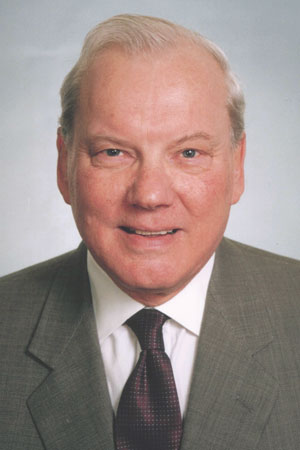One long-standing local law firm’s loss is another’s gain as Michigan-based Dickinson Wright PLLC snaps up well-known gaming lawyer Michael Lipton for its new Toronto office.

The move means the firm Lipton helped establish in 1970, Elkind & Lipton LLP, has now disbanded. Joining him at Dickinson Wright are two lawyers from his former firm, Elliot Rand and Kevin Weber.
Together, the trio will form the Canadian branch of the Michigan firm’s gaming practice group, a team that includes 30 lawyers.
“My vision with the gaming practice group is to become the dominant international provider of gaming-related legal services,” says Bob Stocker, a lawyer with Dickinson Wright’s office in Lansing, Mich.
Stocker, who heads up the firm’s gaming practice group, is also the president of the International Masters of Gaming Law, an association of attorneys, regulators, and gaming executives. Lipton used to head up the organization, and it was through that role that he and Stocker came to work together.
About a year ago, Lipton says Stocker began making overtures about a move to Dickinson Wright, a prospect he was at first reluctant to embrace. But when a partner left Elkind & Lipton recently, he decided the timing was right.
“I think that the synergies are very apparent,” says Lipton, a non-gambler who stumbled upon the field when he began doing work for the Ontario government during its early moves to set up gaming regulations. Since then, his practice has grown to include clients around the world, something both he and Stocker hope will create new business opportunities for the firm.
For his part, Stocker says the firm’s relationships with several Ontario-based companies that do business across the border, along with the growing gaming industry here, make Canada an attractive place to do business.
Still, Lipton argues laws virtually banning the establishment of online gambling operations here put an unnecessary barrier to expansion. Noting the government has changed the Criminal Code to allow online betting on horse races, he says the laws banning other types of gambling operations make no sense.
“It’s sort of akin to keeping your head in the sand. The unfortunate part is the number of people who are engaged in this particular activity from an entertainment perspective is growing. There is a lot of revenue that’s leaving the country.”
The fear over allowing online gambling, of course, is the potential for side effects such as money laundering, increased addictions, and underage gambling. But Lipton argues that so far the experience in Britain, which regulates the sector, has shown operators are taking precautions.
“It sets forth a clear regime that one has to qualify to become licensed,” he says. “They also set clear rules in terms of excluding minors.”
Here in Canada, the irony is that although regulations don’t allow for homegrown online gambling operations, people still play through foreign-based web sites.
“They have revenue flow in the millions of dollars, and I think that Canada is an important market for them,” Lipton says of the offshore sites. “Some people have said that Canada may constitute 10 to 15 per cent of their overall revenue.”
But in the end, Lipton says he has plenty of work to keep him busy. In fact, he argues that operating in Canada is a boon to his business, including with overseas clients. That’s because with strong governmental oversight and ownership of the sector, the country has established a reputation as a “premier jurisdiction in terms of regulation,” he says.
“If you’re advising people, and it’s based on the gold standard, then they’re going to be able to do business anywhere in the world.”
He adds while the current economic climate will probably put a damper on the sector, he doesn’t expect any slowdown to last too long, particularly given what he says are Canadian provinces’ addiction to gambling revenues. “I think they are examining how they could not only maintain but increase the flow,” he says.

 The move means the firm Lipton helped establish in 1970, Elkind & Lipton LLP, has now disbanded. Joining him at Dickinson Wright are two lawyers from his former firm, Elliot Rand and Kevin Weber.
The move means the firm Lipton helped establish in 1970, Elkind & Lipton LLP, has now disbanded. Joining him at Dickinson Wright are two lawyers from his former firm, Elliot Rand and Kevin Weber.